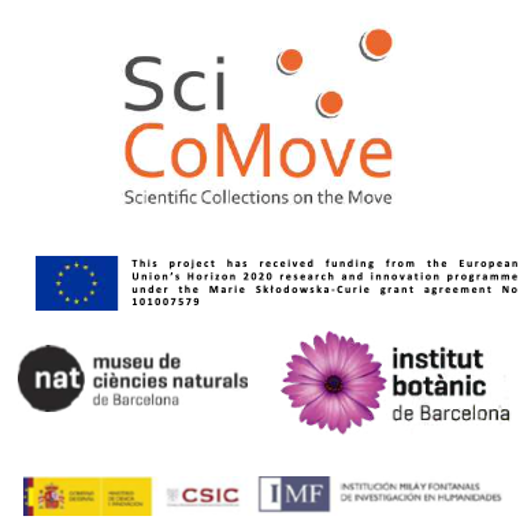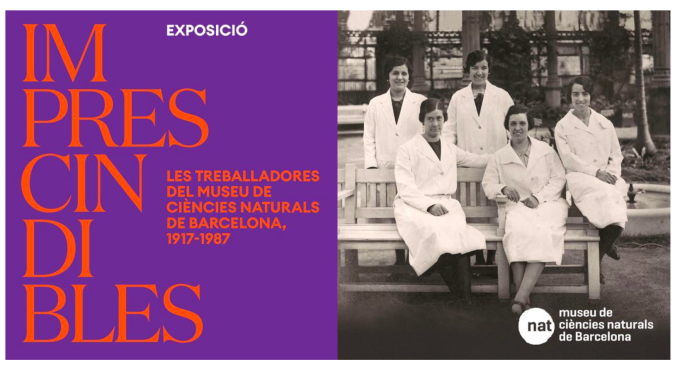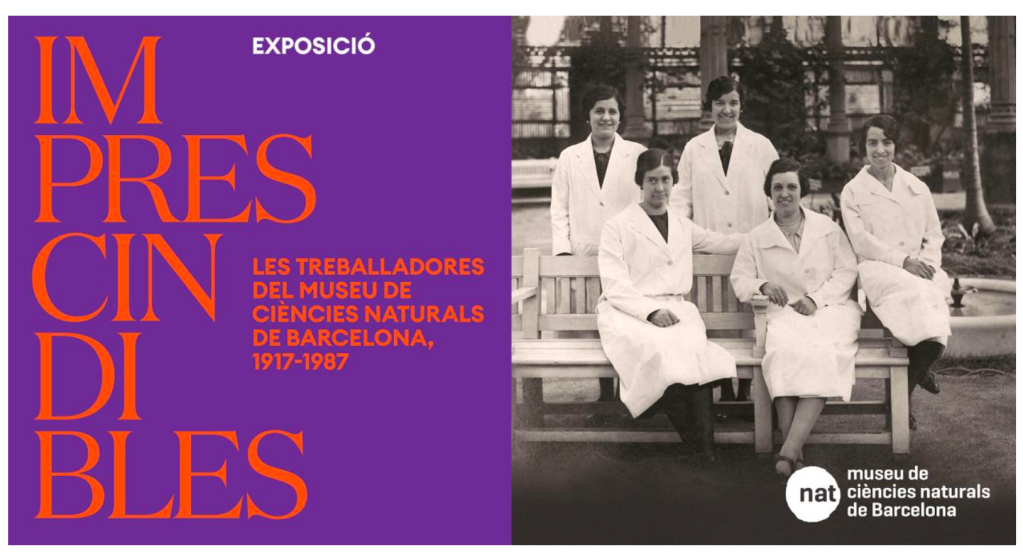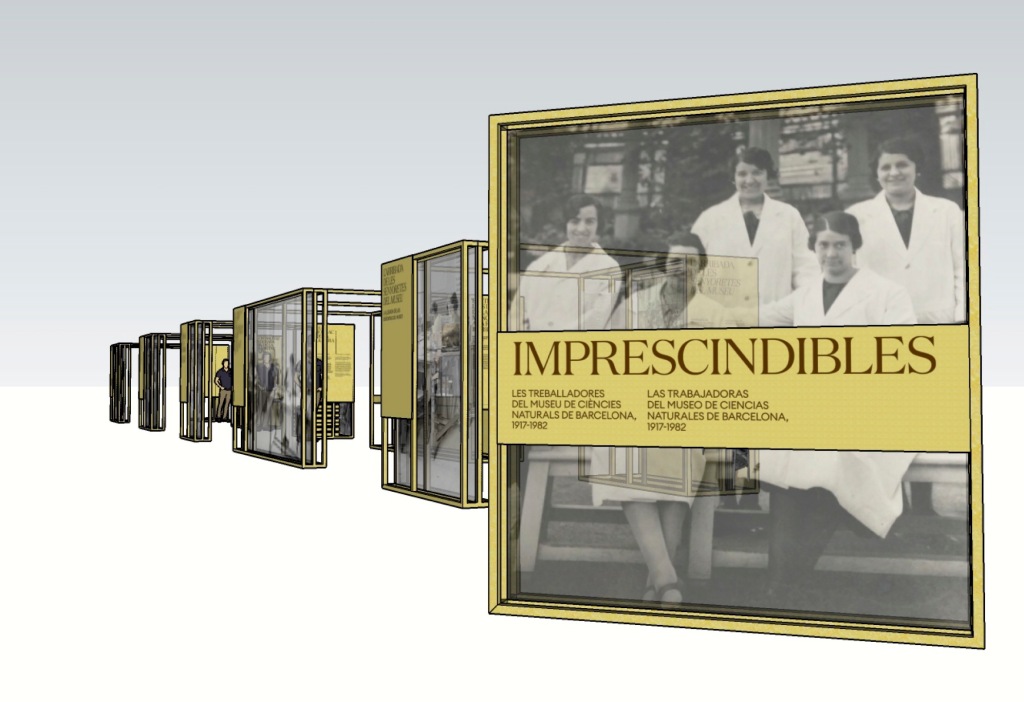SciCoMove Workshop 13-14 April 2023
Museu de Ciències Naturals & Institut Botànic de Barcelona
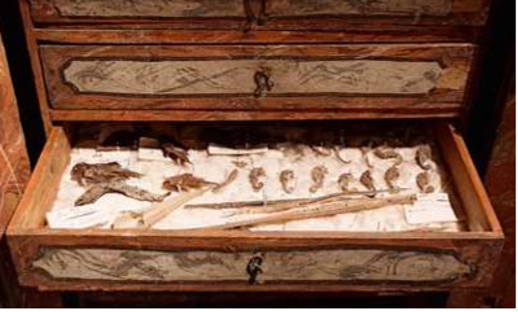
The culture of curiosity towards nature and its productions has been historically expressed throughout very diverse forms and mechanisms, among which the practice of collecting has occupied a prominent place. A practice that gave rise to the configuration of different spaces, among which the cabinet of curiosities was undoubtedly the main protagonist for four centuries, as a space for exhibition, study and conservation.
Although not the only one, since other places, although more informal or even unusual, are of crucial importance for understanding the production and circulation of naturalistic knowledge and objects from the early modern times to the nineteenth and twentieth centuries.
In fact, the complex transition from cabinets of curiosities to natural history museums in the 19th century is irreducible to a mere straight and progressive line marked by the vector of modernity. The long coexistence of the two or more exhibition regimes – private cabinets and public museums, travelling exhibitions, travelling collections – as well as the existence of multiple models of relationship between them, demonstrates the ineffectiveness of continuing to consider them as mere antecedents of today’s museum.
Starting from this framework, we will try to reflect on the culture of curiosity, the practice of collecting and the historical configuration of collections. We are interested in understanding the relationship between the private and the public, between naturalia and artificialia, between eclecticism and specialization, from varied itineraries of objects and collections in places of encounters of diverse condition (cafés, shops, pharmacies, theatres, hotels, arcades, etc.).
In short, it is about delving into the interweaving of the natural and the human at various historical contexts and the current challenge of explaining them from the surviving collections and the remains of those that have vanished.
PROGRAM
Thu 13th April 2023
Museu de Ciències Naturals de Barcelona Conference Room
4-4:30 PM WELCOME
4:30-5:30PM KEY LECTURE by Alfons Zarzoso, former director of Museu d’Història de la Medicina de Catalunya.
5:30-6PM Temporary exhibition: “Imprescindibles. Les treballadores del Museu de Ciències Naturals de Barcelona, 1917-1987”, visit guided by José Pardo-Tomás
6-7 PM Permanent exhibition “Planeta Vida”, Museu de Ciències Naturals de Barcelona, including the room «The Cabinet of Curiosities of Barcelona», guided by Aina Trias Verbeeck.
7-9PM Cocktail Dinner served at the Museu de Ciències Naturals de Barcelona.
Fri 14th April 2023
Institut Botànic de Barcelona Salvador Room
9: WELCOME: The Salvador Room, by Neus Ibáñez.
9:30 AM CRISTIANA OGHINA-PAVIE & LOUISE COUEFFÉ Université d’Angers. An herbarium of roses, between botanical inspiration and gardening curiosity.
10 AM CRISTINA CILLI, GIANCARLA MALERBA & GIACOMO GIACOBINI Human Anatomy Museum, University of Turin. The showcase in the atrium of the Human Anatomy Museum (Turin): Ancient Specimens between Science and Curiosity.
10:30 AM Coffee Break
11 AM XAVIER ULLED BERTRAN ICRPC-CERCA Programme From Curiosity to Utility. Transformation and expansion of the Salvador cabinet, 1830-1855.
11:30 AM CLAIRE SHERIDAN Australian National University. The waxing and waning of academic curiosity: uncovering and activating forgotten collections at the Australian National University.
12 AM DISCUSSION
1 PM Lunch served at the Salvador Room
2:30PM VISIT TO THE HERBARIA OF THE BOTANICAL INSTITUTE guided by Neus Nualart & Laura Gavioli.
3:30 PM CHRISTIAN STENZ Universität Heidelberg. Beyond Coffee Beans. Coffee Plantations and Collecting Practises in 19th Guatemala.
4 PM SUSANA GARCÍA CONICET- Museo de La Plata. Between spectacle and science: travelling exhibitions of seals and other curiosities in the mid 19th century.
4:30 PM OLIVER HOCHADEL IMF- CSIC, Barcelona. Searching for the ideal zoological garden. Zoo travelers in the long nineteenth century.
5 PM MARIA ALEJANDRA PUPIO Universidad Nacional del Sur, Argentina Salesian scientists in Argentine Patagonia in the first decades of the 20th century.
5:30 PM MIQUEL CARANDELL Museu de Ciències Naturals, Granollers Scientific collections, historical archive and a specialized library of a middle-size natural history museum: the case of the Natural Sciences Museum of Granollers
6 PM DISCUSSION
7PM CLOSURE
